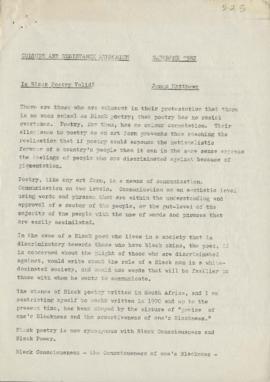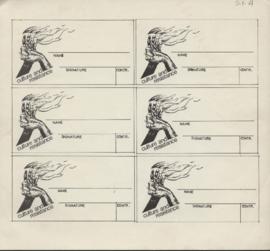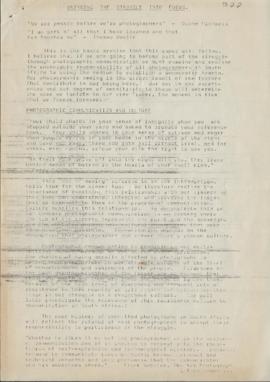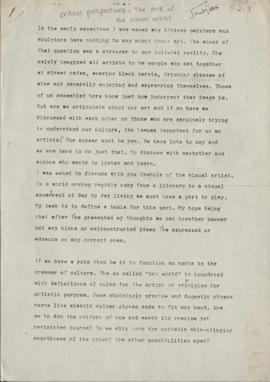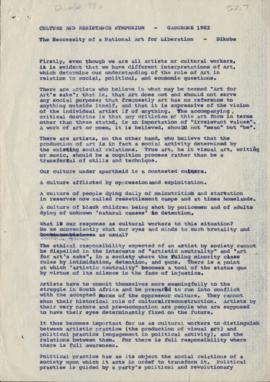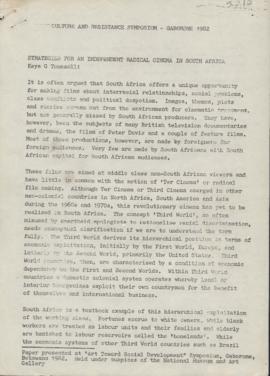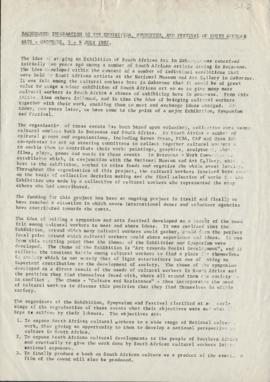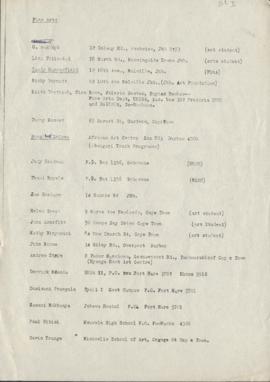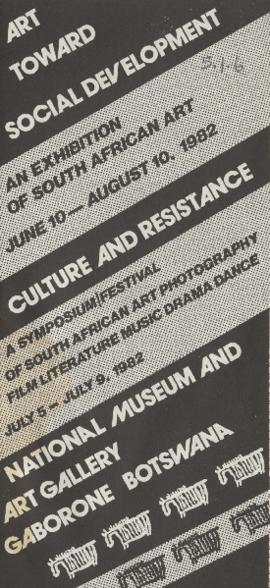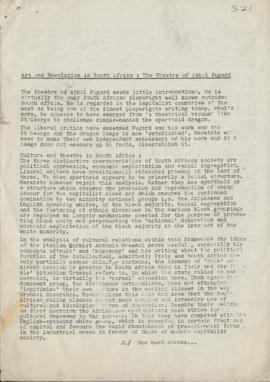- ZA MEDU MEDU-5-5.2-5.2.5
- Subsérie
- 1982
Is the concept of "black poetry" valid? James Matthews argues that black poetry has become a powerful force in South Africa. He suggests that poetry by and about the black majority is locally grounded and people no longer look toward America for such inspiration. Matthews draws links between black poetry, black consciousness and black power.
Sem título

